7 Feng Shui bird symbols and the meaning behind it
Birds are powerful symbols in many cultures, including Asian traditions like feng shui, and can be found in palaces as well as the simplest of adornments. Animals are important in feng shui because it is all about connecting to the natural world. Birds are particularly compelling symbols because they are able to fly freely above the ground. These creatures soar through the sky, tying us to the stars. Birds are thought to be divine messengers, carrying our pleadings to the gods above.
Our flock of birds, along with their feng shui meanings. You can use bird imagery to express the qualities you want to cultivate in your home and life. Here are a few of our favourite ways to incorporate bird symbols into your home:
- Sculptures
- Ceramics
- Wallpaper
- Figurines
- Decorated vases
- Photographs
- Artwork
1. Magpie: Happiness and Inviting Romantic Relationships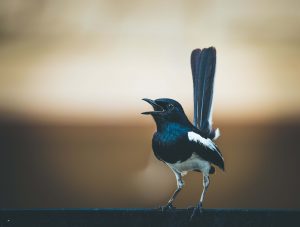
Magpies are widely regarded as a symbol of happiness and good fortune in Asian cultures. Their imagery is well-known, and they are even Korea’s national bird and symbol. This bird is also linked to myths and stories about successful romantic relationships getting off to a good start.
Images of a pair of magpies can be used to attract a fruitful and happy partner into your life by placing them in the Kun (partnership) area of the bagua map.
2. The Peacock is a beautiful bird with a lot of wisdom.
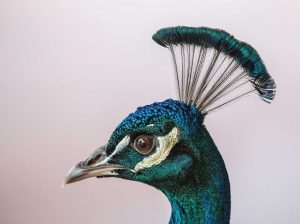
Peacocks are symbols of status and wealth because they are associated with beauty and wisdom. They are regarded as the human equivalent of the phoenix.
Peacocks have iridescent tail feathers that are brightly coloured. In the natural world, this kind of elegance is extremely rare. The fanned tail’s many “eyes” also allude to wisdom and seeing things as they are in the real world with true brilliance.
Peacock blue or peacock feather images can bring the energy of beauty and wisdom into your home.
3. Rooster: Yang Energy and Protection
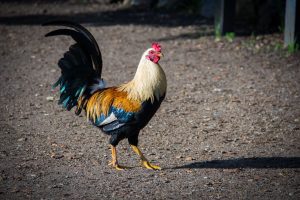
The only birds that appear in both the Chinese and Western zodiacs are roosters. Their yang energy is bold, proud, and very yang in the zodiac (masculine).
Feathers are frequently used in feng shui protection adjustments. This is because the dependable rooster crows every morning to chase away any negative energy and usher in a new day. Before moving into a home in ancient China, it was customary to let a rooster loose.
4. Crane: Long Life and Wishes Fulfilled
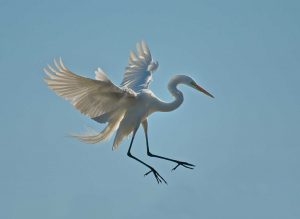
In Asian cultures, the graceful crane represents longevity. The crane is a bird that can live for a thousand years and is thought to have existed in the ancient world. It’s also said that if you fold 1,000 origami cranes, your wish will come true. Cranes are frequently associated with turtles, another long-lived symbol.
Cranes made out of origami are a fun addition to any home. You can find fun whimsical colours and string them together, and there you have it! Wishes come true!
5. Phoenix: Rebirth and Good Fortune

The auspicious phoenix, the only mythological bird on this list, represents purification and rebirth because it is said to be reborn from its own ashes. They are also said to appear when the world is led by noble leadership. In Asian cultures, this magnificent bird is also associated with good fortune, opportunity, and luck.
The phoenix is also one of the four celestial animals in feng shui (also sometimes known as the redbird or red raven). The fire element and the south are represented by the red phoenix.
6. Mandarin Ducks: Marriage, Harmony, and Fidelity.
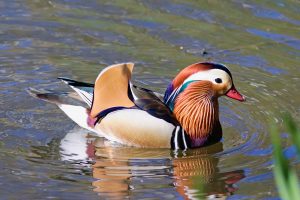
A pair of mandarin ducks represents a happy and successful marriage because they mate for life. Wooden mandarin ducks are given as wedding gifts in some Asian cultures to ensure a happy marriage. The ducks are placed in front of the couple’s house, facing each other. You can also put them in the Kun (partnership) area of the Bagua map to strengthen your marriage’s devotion.
7. Swallows: Yin Energy and New Beginnings
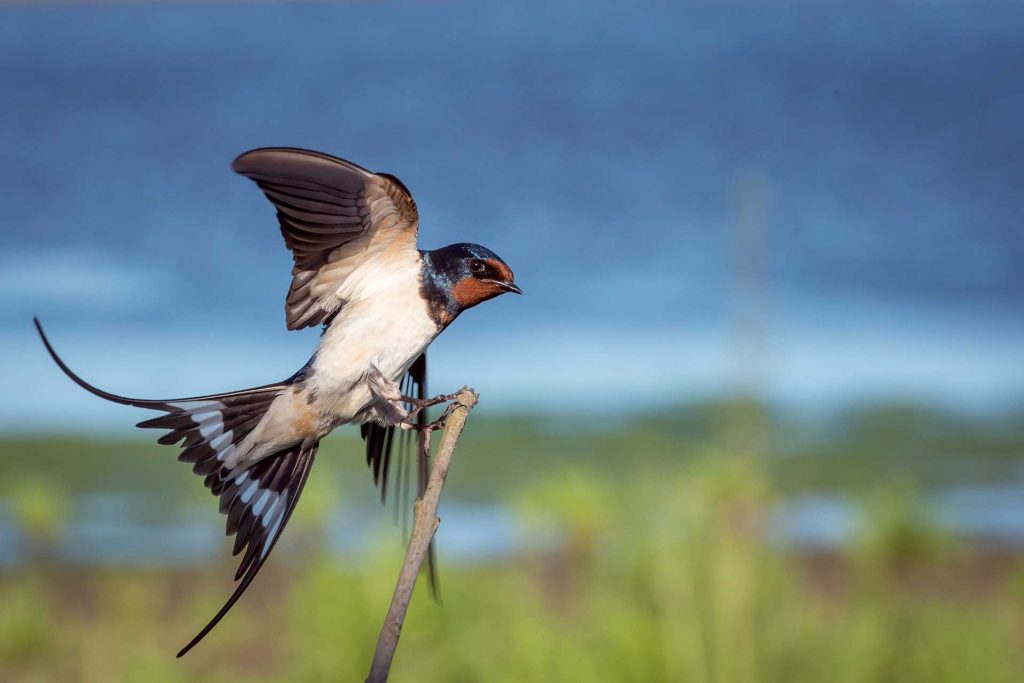
Swallows are revered in Asian cultures as harbingers of spring. Their migratory patterns are so consistent that their arrival in China was used to help time the equinoxes. Spring is associated with the wood element in feng shui and is associated with life, new beginnings, and family. In China, having a nest of swallows on your roof is considered lucky because it attracts good fortune.
The swallow is also a bird associated with femininity and beauty. It’s a popular Chinese girl’s name.
